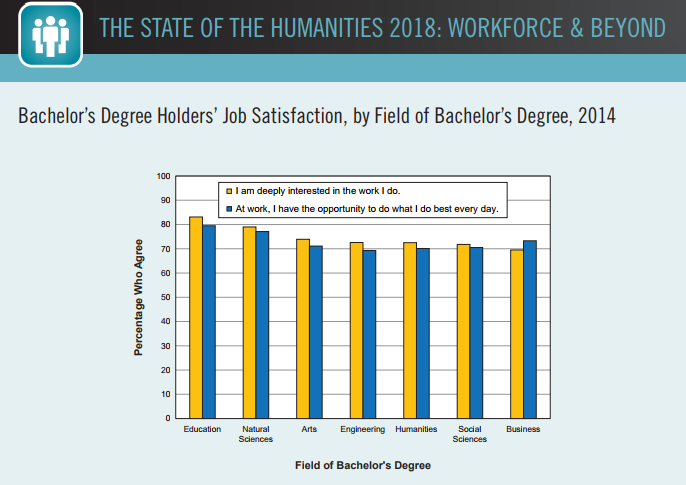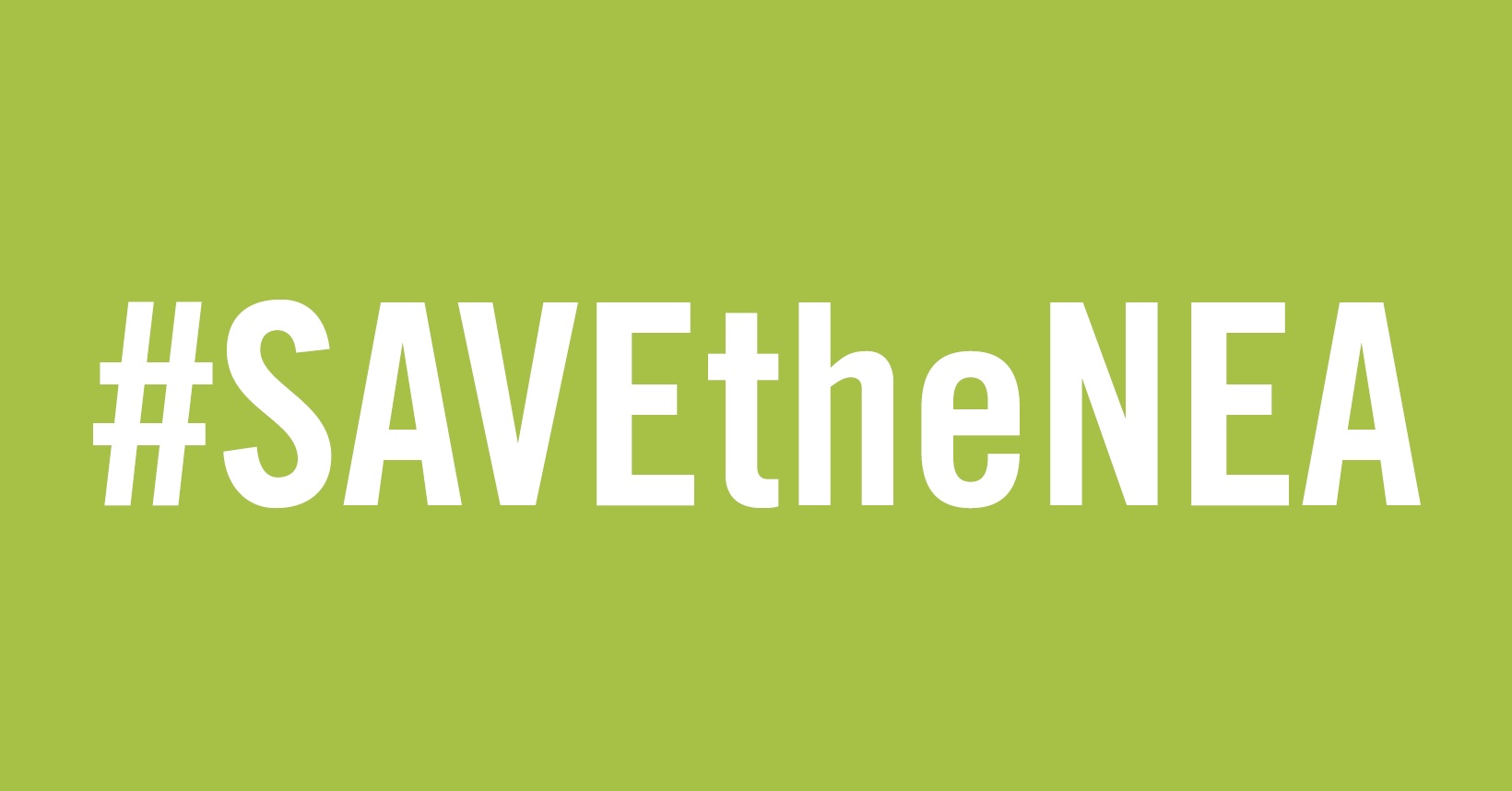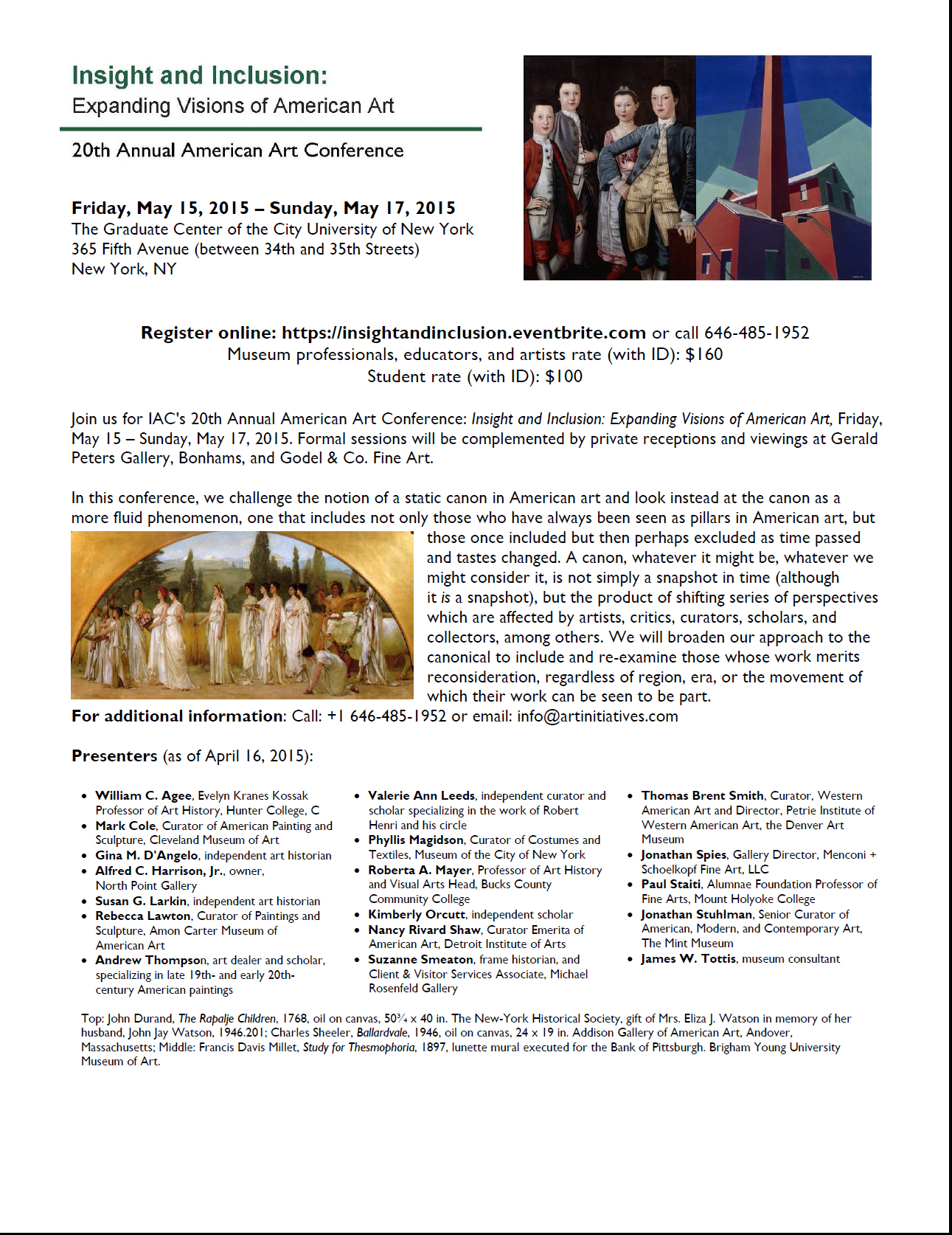CAA News Today
CAA at 2018 Arts and Humanities Advocacy Days in Washington, DC
posted by CAA — March 16, 2018
CAA staff in Washington, DC (left to right): Joelle Te Paske, media and content manager, Alison Chang, sponsorship and partnership manager, Aakash Suchak, grants and special programs manager, Hunter O’Hanian, executive director, and Nick Obourn, director of communications, marketing, and membership.
Earlier this week CAA staff traveled to Washington, DC for Americans for the Arts’s Arts Advocacy Day and National Alliance for the Humanities’s Humanities Advocacy Day.
After a day of breakout sessions and briefings on Monday, staff visited congressional offices on Tuesday to advocate for continued funding for NEA, NEH, IMLS, CPB, and support for the arts, humanities, and higher education. See our on-the-ground updates.
We visited 18 congressional offices representing three different states, with positive responses from both Democrats and Republicans. We meet with staff or dropped off materials with:
New York
Sen. Chuck Schumer (D-NY)
Rep. Grace Meng (D-NY 6th District)
Dropped off materials with Rep. Nydia Velázquez (D-NY 7th District)
Dropped off materials with Rep. Hakeem Jeffries (D-NY 8th District)
Rep. Yvette Clarke (D-NY 9th District)
Rep. Jerrold Nadler (D-NY 10th District)
Dropped off materials with Rep. Eliot Engel (D-NY 16th District)
Rep. Nita Lowey (D-NY 17th District)
Rep. Sean Maloney (D-NY 18th District)
Wisconsin
Sen. Ron Johnson (R-WI)
Rep. Mark Pocan (D-WI 2nd District)
Rep. Sean Duffy (R-WI 7th District)
Rep. Mike Gallagher (R-WI 8th District)
Connecticut
Sen. Richard Blumenthal (D-CT)
Rep. John Larson (D-CT 1st District)
Rep. Joe Courtney (D-CT 2nd District)
Rep. Jim Himes (D-CT 4th District)
Rep. Elizabeth Esty (D-CT 5th District)
Learn more about Advocacy Days below.
ARTS ADVOCACY DAY
March 12 – March 13, 2018
Hosted by Americans for the Arts
Arts advocates from across the country convene in Washington, DC for Americans for the Arts’s annual Arts Advocacy Day each year. Arts Advocacy Day brings together a broad cross section of America’s cultural and civic organizations, along with more than 700 grassroots advocates from across the country, to underscore the importance of developing strong public policies and appropriating increased public funding for the arts. Learn more.
HUMANITIES ADVOCACY DAY
March 11 – March 13, 2018
Hosted by National Alliance for the Humanities
Humanities Advocacy Day provides the opportunity to connect with a growing number of humanities advocates from around the country. Together, advocates will explore approaches to year-round advocacy on college campuses and in local communities while also preparing for Capitol Hill visits. On March 13, they will visit House and Senate offices to make a persuasive case for federal funding for the humanities. Learn more.
WHY DID CAA ATTEND?
For two years in a row, we’ve offered our complete and total opposition to efforts to eliminate funding for the National Endowment for the Arts (NEA), the National Endowment for the Humanities (NEH), and other domestic programs that fund education, arts, and humanities initiatives, as outlined in the 2018 and 2019 White House budget proposals.
Over the last year, we’ve also solicited feedback from our members on a variety of issues that impact the arts, humanities, and higher education, including:
- Gun control and the proposal to arm teachers
- Tax reform and its effect on higher education
- Embracing and supporting diverse voices in the arts
- Hiring standards for part-time faculty
- Removing or preserving Confederate monuments
- The Muslim Travel Ban
For more on our advocacy efforts, click here.
We encourage you to be vocal about your support for the arts and humanities. Click here to access the CAA Arts and Humanities Advocacy Toolkit.
CAA Goes to Washington
posted by CAA — March 07, 2018
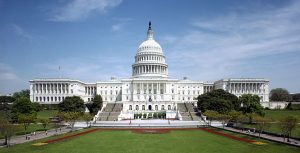
See live updates on Twitter and Instagram
Early next week, staff members from CAA will be attending Arts Advocacy Day and Humanities Advocacy Day in Washington, DC.
ARTS ADVOCACY DAY
March 12 – March 13, 2018
Hosted by Americans for the Arts
Arts advocates from across the country convene in Washington, DC for Americans for the Arts’s annual Arts Advocacy Day each year. Arts Advocacy Day brings together a broad cross section of America’s cultural and civic organizations, along with more than 700 grassroots advocates from across the country, to underscore the importance of developing strong public policies and appropriating increased public funding for the arts. Learn more.
HUMANITIES ADVOCACY DAY
March 11 – March 13, 2018
Hosted by National Alliance for the Humanities
Humanities Advocacy Day provides the opportunity to connect with a growing number of humanities advocates from around the country. Together, advocates will explore approaches to year-round advocacy on college campuses and in local communities while also preparing for Capitol Hill visits. On March 13, they will visit House and Senate offices to make a persuasive case for federal funding for the humanities. Learn more.
WHY IS CAA ATTENDING?
For two years in a row, we’ve offered our complete and total opposition to efforts to eliminate funding for the National Endowment for the Arts (NEA), the National Endowment for the Humanities (NEH), and other domestic programs that fund education, arts, and humanities initiatives, as outlined in the 2018 and 2019 White House budget proposals.
Over the last year, we’ve also solicited feedback from our members on a variety of issues that impact the arts, humanities, and higher education, including:
- Gun control and the proposal to arm teachers
- Tax reform and its effect on higher education
- Embracing and supporting diverse voices in the arts
- Hiring standards for part-time faculty
- Removing or preserving Confederate monuments
- The Muslim Travel Ban
For more on our advocacy efforts, click here.
We encourage you to be vocal about your support for the arts and humanities next week (and beyond!). Click here to access the CAA Arts and Humanities Advocacy Toolkit.
Maybe the Pay Isn’t Great, But the Satisfaction Is High
posted by CAA — February 13, 2018
The Humanities Indicators project, an Andrew E. Mellon Foundation-funded initiative, just released the most recent numbers on salaries for those entering the the humanities professions. CAA has been an active participant in the initiative for the past few years.
Their survey shows that as of 2015, for arts graduates in the workforce, the median earnings for art history majors in the workforce with just a bachelor’s degree were $45,000, while those who had gone on to earn an advanced degree (which could be in any discipline) had median earning of $65,000. Graduates who majored in the arts had median earnings of $48,000 (with just a bachelor’s degree) and $60,000 (with an advanced degree). In all cases, these were slightly below the average for all fields.
These updates about earnings are tied to a new report on humanities majors in the workforce, which tries to look beyond earnings, and finds that when it comes to job satisfaction and perceived well-being, humanities majors are pretty much the same as graduates from every other field (including art majors).
Among the key findings in the new report:
- Almost 87% of workers with a bachelor’s degree in the humanities reported they were satisfied with their jobs in 2015, comparable to graduates from almost every other field.
- Over three-quarters of humanities graduates saw themselves at or approaching “the best possible life,” which was similar to the shares among engineering and natural science graduates. Education majors had the highest level on this measure.
- The academic fields were quite similar with respect to their graduates’ level of satisfaction with their personal financial situations in 2014. Among graduates from engineering, barely 50% reported “I have enough money,” while among humanities and education graduates, the share was 42%. (Arts majors had the lowest share on this question.)
- More than a million graduates with bachelor’s degrees in the humanities were employed as managers in 2015, and almost 60% of humanities graduates report managing or supervising employees as part of their job (which was equal to the share of all graduates).
- While much of the report points to similarities, there was one notable difference: only 30% of graduates with a bachelors in humanities perceived a close relationship between their job and their degree in 2014, while more than a third saw no relationship. Fine and performing arts majors were similar on this score. This differed substantially from graduates with science and professional degrees.
CAA Statement on the 2019 White House Budget Proposal
posted by CAA — February 12, 2018
Earlier this afternoon, the White House released its 2019 Budget Proposal. The $4.4 trillion budget outlines deep cuts in domestic programs that fund education, arts, and humanities initiatives, while increasing military spending.
“By zeroing out the budgets for the NEH, NEA and similar agencies that support the arts, humanities and education, the President has shown again that he cares more about tax cuts for the wealthy than supporting an American cultural heritage, funded though these agencies,” said Hunter O’Hanian, CAA’s executive director. “Thankfully, a bipartisan group of Congressional members, those with the real financial authority, have Americans interests at heart and they will reject the President’s draconian proposals.”
The entire budget proposal adds $984 billion to the federal deficit in the next year and in total adds $7 trillion to the deficit over the next 10 years.
Partial list of programs slated for elimination:
- NEA
- NEH
- IMLS
- CPB
- Corporation for Travel Promotion (Brand USA)
- Delta Regional Authority
- Denali Commission
- Northern Border Regional Commission
- Woodrow Wilson Center
- S. Interagency Council on Homelessness
- S. Trade and Development Agency
- Chemical Safety and Hazard Inspection Board
- Under SNAP: “Proposals are also included to eliminate funding for State performance bonuses and for SNAP nutrition education grants…”
- Economic Development Administration
- Contingency Fund
We call on our members and those who believe in the importance of the arts, humanities, and education to act now. The most effective way to make your voice heard is through your local representatives. Call. Email. Write letters.
Congress has this budget in their hands and now is the time to let them know you support the programs it seeks to eliminate.
Click here to access the CAA Arts and Humanities Advocacy Toolkit.
We look forward to discussing budget advocacy at our Annual Conference in Los Angeles, February 21-24.
Statement on the US President’s FY2018 Budget Proposal
posted by CAA — March 16, 2017
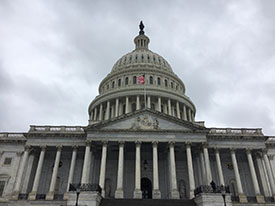 Today the US President released his proposal for 2018 federal budget – it envisions transferring additional billions of dollars to the Department of Defense, Veterans Affairs, and Homeland Security from many important domestic programs such as the Environmental Protection Agency, education, and legal services. As expected, the budget also calls for the complete elimination of the Corporation for Public Broadcasting, National Endowment for the Arts, National Endowment for the Humanities, and 16 other federal agencies. CAA was one of the first national organizations to speak against these cuts.
Today the US President released his proposal for 2018 federal budget – it envisions transferring additional billions of dollars to the Department of Defense, Veterans Affairs, and Homeland Security from many important domestic programs such as the Environmental Protection Agency, education, and legal services. As expected, the budget also calls for the complete elimination of the Corporation for Public Broadcasting, National Endowment for the Arts, National Endowment for the Humanities, and 16 other federal agencies. CAA was one of the first national organizations to speak against these cuts.
Read the statement against these cuts that CAA released on January 23, 2017.
As educators, art historians, artists, curators, museum directors, designers, scholars, and other members of the visual arts community we must act to defend the role of arts and humanities in our society. The budget process is long and ultimately controlled by the US House and Senate. Earlier this week, CAA traveled to Washington for Humanities Advocacy Day to meet with many congressional offices to discuss the importance of continued NEA and NEH funding. We will return again next week to do the same for Arts Advocacy Day.
In addition, CAA assembled an Arts and Humanities Advocacy Toolkit with information on how to contact your representatives in Congress to voice your support for the NEA and NEH and the many quality programs they fund. Call their offices. Email them. Attend Town Halls. You can learn how these agencies support activities in your area here: funded by the NEA and funded by the NEH. Be sure to let your representatives know of the impact of the arts and humanities in your districts. Spread the word to your colleagues and friends.
Despite the White House’s opposition to continued funding for the NEA and NEH, there is sufficient reason to believe that many members of the US House and Senate will support a budget that includes continued funding for these agencies. I ask our members to join in the effort to make sure all members of Congress knows the importance of the work done by these agencies.
![]()
Hunter O’Hanian
Executive Director
Chief Executive Officer
CAA Statement on Government Spending Cuts for Arts and Humanities
posted by Christopher Howard — January 23, 2017
For more than a century, the College Art Association (CAA) has represented art historians, artists, museum professionals, designers, and others who think and care about the visual arts and its impact on our culture. We do this in part through direct advocacy for artistic and academic freedom.
Like many other Americans, we have closely watched the proposed changes to the federal government. Recent news reports reveal that the US President intends to propose the elimination of funding for the National Endowment for the Arts (NEA) and the National Endowment for the Humanities (NEH). This proposal is reportedly based in part on a recommendation by the Heritage Foundation that states, “As the U.S. Congress struggles to balance the federal budget and end the decades-long spiral of deficit spending, few programs seem more worthy of outright elimination than the National Endowment for the Arts.”
We offer our complete and total opposition to these efforts.
Since the 1960s, the NEA and NEH have supported artists, writers, museum professionals, and a wide array of scholars of various disciplines in creating new work and scholarship. The NEA supports thousands of cultural and educational organizations, and, in a few cases, individual artists. The NEH, which strengthens teaching and learning in schools and colleges—as well as the work of independent scholars—creates access to educational scholarship and research nationwide. In addition, the NEH is a strong supporter of museum exhibitions throughout the country. Combined, the budgets for the two agencies are less than $300 million. The organizational grantees generate hundreds of millions of dollars in matching support and countless new works of art and scholarship. These works and related projects are studied and enjoyed by millions of Americans in museums and other venues. The cultural sector of the US economy generates more the $135 billion in revenue and employs over three million people in small towns and large cities countrywide.
Given that the respective budgets of the NEA and NEH represent only a tiny fraction of the entire federal budget, their planned elimination cannot logically be seen as a cost-saving measure. Rather, it appears to be a deliberate, ominous effort to silence artistic and academic voices, representing a potentially chilling next step in an apparent effort to stifle and eradicate oppositional voices and cultural output from civic life. By eliminating the support for these agencies, the government undermines the unifying potential of the arts, culture, and education that encourages and nurtures communication and positive discussion.
CAA leadership is monitoring the possible elimination and/or reduction of funding for the NEA and NEH and how it may affect our members and the work they do. CAA will communicate and collaborate with other cultural and educational organizations and learned societies to determine potential future advocacy options.
We urge our fellow CAA members to contact their representatives in Congress to let them know the importance of maintaining a robust, national, publicly supported framework for artistic and academic freedom. When you contact your representative, we ask that you let them know you are a member of CAA and together we are advocating for continued public funding for the arts. We also encourage you to contact the National Humanities Alliance and Americans for the Arts to become further involved.
Through our collective strength, we can ensure that public funding of scholarship and art making continues, free from political and commercial interference.
 Suzanne Preston Blier President |
Hunter O’Hanian Executive Director Chief Executive Officer |
Collaboration with the MacArthur Foundation
posted by CAA — January 12, 2016
One of CAA’s annual Distinguished Artists’ Interviews at the 2016 Annual Conference in Washington, DC—the artist Rick Lowe in conversation with the photographer LaToya Ruby Frazier—is among the first events of the John D. and Catherine T. MacArthur Foundation’s year-long series of performances, discussions, and other events to celebrate the thirty-fifth anniversary of its iconic fellowship program. The MacArthur Foundation will collaborate with a diverse set of partners for 2016 programming, including Chicago’s Grant Park Music Festival, Washington’s Kennedy Center for the Performing Arts, and New York’s 92nd Street Y. Most events will be open to the public for free or at low cost. Video of many events will be published online.
Lowe received a MacArthur fellowship in 2014, and Frazier won the prize in 2015. The Distinguished Artists’ Interviews will take place on Friday, February 5, 2:30–5:00 PM, in the Thurgood Marshall Ballroom East/South, Mezzanine Level, at the Washington Marriott Wardman Park Hotel in Washington, DC. Preceding their conversation will be another interview: the artist Joyce Scott interviewed by George Ciscle of the Maryland Institute College of Art. Both talks will be live streamed on CAA’s YouTube page.
“Working across every field imaginable, MacArthur fellows capture the public imagination and inspire people to nurture creativity in their own lives and communities,” said Cecilia Conrad, managing director of the MacArthur Fellows Program, during a luncheon at the City Club of Chicago that also featured the labor organizer Ai-Jen Poo and the artist Iñigo Manglano-Ovalle, both MacArthur fellows. “This year-long celebration will showcase fellows’ work, foster new collaborations, and enable these highly creative people to further inspire us all.”
Programming is under development and subject to change; but it is expected to include the following events:
- Lowe will deliver a lecture on “Art in the Social Context” at Stanford University’s Haas Center for Public Service in California, as part of the Mimi and Peter E. Haas Distinguished Visitor program(February 4)
- In conjunction with an exhibition of her work, the Whitney Museum of American Art will host a discussion with the documentary filmmaker Laura Poitras (New York, February).
- Sixth & I, a historic synagogue and cultural event space in Washington, DC, will present a panel discussion featuring MacArthur fellows (March)
- The 92nd Street Y in New York will present a panel discussion featuring MacArthur fellows (March)
- The Economics Club of Chicago will feature two conversation pairings with the arts entrepreneur Claire Chase and the music educator Aaron Dworkin, as well as the computational biologist John Novembre and the historian Tara Zahra (May 25)
- MacArthur fellows will be featured in a plenary session at the annual convention of Americans for the Arts in Boston (June)
- The Chicago Humanities Festival will incorporate MacArthur fellows into its regular annual programming (September)
- The John F. Kennedy Center for the Performing Arts in Washington, DC, will host two free public performances by MacArthur fellows through its Millennium Stage series (October)
The anniversary celebration will also include an online component, featuring one MacArthur fellow each month responding to public questions on Reddit as well as interviews with fellows on popular YouTube channels.
The MacArthur fellowship—called “genius grants” by the media—recognizes exceptionally creative individuals with a track record of achievement and the potential for significant contributions in the future. Fellows each receive a no-strings-attached stipend of $625,000, which comes with no stipulations or reporting requirements and allows recipients maximum freedom to follow their own creative visions. Since 1981, 942 people have been named MacArthur fellows. Fellows are selected through a rigorous process that has involved thousands of expert and anonymous nominators, evaluators, and selectors over the years.
2016 Annual Conference Website Is Live
posted by Christopher Howard — October 08, 2015
 The website for the 104th Annual Conference in Washington, DC, to be held from Wednesday, February 3 to Saturday, February 6, 2016, at the Washington Marriott Wardman Park Hotel, is live today. Get a taste of conference highlights and discover the benefits of registration, including access to all program sessions and admission to the Book and Trade Fair.
The website for the 104th Annual Conference in Washington, DC, to be held from Wednesday, February 3 to Saturday, February 6, 2016, at the Washington Marriott Wardman Park Hotel, is live today. Get a taste of conference highlights and discover the benefits of registration, including access to all program sessions and admission to the Book and Trade Fair.
The dynamic energy of Washington, DC—known for its world-class museums and as an international destination for American history and culture—provides the backdrop for our annual gathering of more than four thousand artists, art historians, museum directors and curators, arts administrators, scholars, and educators. Look forward to the best in new scholarship, innovative art, and in-depth discussion of issues in the visual arts today.
Highlights of this year’s conference include the presentation of CAA’s 2016 Awards for Distinction, an opening reception at the Katzen Arts Center at American University, and the sixteenth annual Distinguished Scholar Session honoring Richard J. Powell of Duke University. The two Distinguished Artists’ Interviews will feature the sculptor Joyce Scott, speaking to the curator George Ciscle.
Among the highly anticipated sessions are: “South to North: Latin American Artists in the United States, 1820s–1890s,” chaired by Katherine E. Manthorne; “Transforming Japonisme: International Japonisme in an Age of Industrialization and Visual Commerce,” led by Gabriel P. Weisberg; and the two-part “Formalism before Clement Greenberg,” chaired by Katherine M. Kuenzli and Marnin Young. Other exciting session topics range from art as adventure to the Hudson River School, from digital cultural heritage to algorithms and data in contemporary art, and from diversity in curatorial work to staging design in museums.
 Online registration for individuals and institutions is now open. In addition, you can book your hotel reservations and make your travel arrangements—don’t forget to use the exclusive CAA discount codes to save money! Register before the early deadline, December 21, 2015, to get the lowest rate and to ensure your place in the Directory of Attendees. You may also purchase tickets for special events and for a place in one of eleven professional-development workshops on a variety of topics for artists and scholars.
Online registration for individuals and institutions is now open. In addition, you can book your hotel reservations and make your travel arrangements—don’t forget to use the exclusive CAA discount codes to save money! Register before the early deadline, December 21, 2015, to get the lowest rate and to ensure your place in the Directory of Attendees. You may also purchase tickets for special events and for a place in one of eleven professional-development workshops on a variety of topics for artists and scholars.
CAA will regularly update the conference website in the months leading up to the four-day event, so please be sure to check back often. Averaging more than 40,000 unique visitors per month, the conference website is the essential source for up-to-the-minute updates regarding registration, session listings, and hotel and travel discounts. Visit the Advertising section to learn more about reaching CAA membership and conference attendees.
We look forward to seeing you in Washington, DC!
Insight and Inclusion: Expanding Visions of American Art
posted by Christopher Howard — May 07, 2015
Initiatives in Art and Culture will present “Insight and Inclusion: Expanding Visions of American Art,” a conference on American art to be held May 15–17, 2015, at the Graduate Center, City University of New York.
Help the NEH Celebrate Its Fiftieth Anniversary
posted by CAA — January 29, 2015
 The National Endowment for the Humanities (NEH), an independent federal agency created in 1965 and one of the largest funders of humanities programs in the United States, is celebrating its fiftieth anniversary in 2015–16. To mark this historic event, we would like you to tell us about an NEH grant or grant product that has made a difference in your life, career, community, or academic field. To contribute stories about NEH’s past or for more information, send an email to NEH50@neh.gov. Please include your name and telephone number in your message.
The National Endowment for the Humanities (NEH), an independent federal agency created in 1965 and one of the largest funders of humanities programs in the United States, is celebrating its fiftieth anniversary in 2015–16. To mark this historic event, we would like you to tell us about an NEH grant or grant product that has made a difference in your life, career, community, or academic field. To contribute stories about NEH’s past or for more information, send an email to NEH50@neh.gov. Please include your name and telephone number in your message.
Because democracy demands wisdom, the NEH serves and strengthens our republic by promoting excellence in the humanities and conveying the lessons of history to all Americans. The endowment accomplishes this mission by awarding grants for top-rated proposals examined by panels of independent, external reviewers. NEH grants typically go to cultural institutions, such as museums, archives, libraries, colleges, universities, public television, and radio stations, and to individual scholars. The grants:
- strengthen teaching and learning in schools and colleges
- facilitate research and original scholarship
- provide opportunities for lifelong learning
- preserve and provide access to cultural and educational resources
- strengthen the institutional base of the humanities
Since 1965, the endowment has opened new worlds of learning for the American public with noteworthy projects such as:
- Seven thousand books, 16 of which have won Pulitzer Prizes and 20 of which have received the Bancroft Prize
- The Civil War, the landmark documentary by Ken Burns viewed by 38 million Americans
- The Library of America editions of novels, essays, and poems celebrating America’s literary heritage
- The United States Newspaper Project, which catalogued and microfilmed 63.3 million pages of historic newspapers and paved the way for the National Digital Newspaper Program and its digital repository, Chronicling America
- Annual support for 56 states and territories to help support some 56,000 lectures, discussions, exhibitions, and other programs each year
We look forward to hearing from you!



